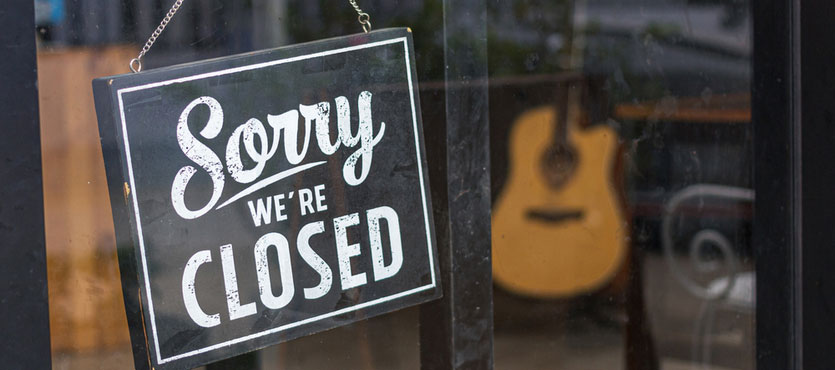A Chicago restaurant group is just one of many businesses who have asked their insurance
companies to cover coronavirus-related losses. For the most part, insurance companies have
refused to pay. What are your legal and financial rights as a business-owner?
Restaurants in Big Onion Tavern Group LLC collectively furloughed about 1,500 employees and
closed down because of the coronavirus pandemic and subsequent stay-at-home orders. Society
Insurance refused to pay a business continuity claim, asserting that the restaurants were not
physically damaged per the policy details. “Society Insurance waited until after it collected
plaintiffs’ premiums, and after a pandemic and the resulting closure orders caused catastrophic
business losses to plaintiffs, to try to limit its exposure on the backend through its erroneous
assertion that the presence of the coronavirus is not ‘physical loss’ and therefore is not a covered
cause of loss under its policies.”
Owners are also upset with the way Society handled the claim. Rather than investigate the
matter, adjusters dismissed the claim outright. “After years of paying high premiums for this
coverage, our claims were denied even before being submitted. We were simply dismissed. It is
heartbreaking to sit back and watch our employees and business suffer through no fault of our
own and with no end in sight,” said one owner.
A number of other similar lawsuits have been filed in jurisdictions across the United States.
Business Interruption Insurance: An Overview
No one expects to die early or for the house to burn down, but responsible people still obtain life
and fire insurance. Likewise, most business-owners probably never thought they would ever file
business interruption claims. Yet here we are.
Most business interruption policies include civil action or physical damage clauses. These are
examined in detail below.
Legally, insurance companies usually have a duty to acknowledge a claim within 14 days. Many
companies try to use widespread disasters, like the COVID-19 outbreak, as an excuse to delay
action. But in most cases, the 14-day rule remains in effect. Claim acknowledgement usually
starts the clock. Generally, insurance companies have 90 days to pay or deny the claim.
The covered amount in business interruption policies varies according to the policy’s language.
Most policies use a “net-plus” calculation.
Assume Bill’s Bar is forced to close for a month. During this month, Bill normally earned
$100,000 before taxes. The last year or two of bank statements probably establishes his income.
When he closed, Bill furloughed his employees and cut as many costs as he could. Nevertheless,
he still paid $10,000 in rent, utilities, and other unavoidable costs. So, his net-plus losses are
$110,000.
To determine if Bill is entitled to payment, the insurance company has a legal duty to investigate
the claim. They simply cannot stamp it “paid” or “denied.” At a minimum, the insurance
company must determine why Bill closed, what other options he had, if any, and the amount of
his covered losses.
Finally, as mentioned, the insurance company has a duty to pay or deny the claim within 90 days.
Most insurance policies are total loss policies. The insurance company bears the entire financial
risk. Depreciation is irrelevant. These issues often come up in fire, flood, and other physical
damage claims.
Physical Damage Clauses and COVID-19
Is a disease outbreak a “physical loss?” Clearly, coronavirus is not a hurricane or a tornado
which causes physical destruction. Additionally, in the wake of the 2003 Severe Acute
Respiratory Syndrome (SARS) outbreak, some insurance companies amended physical damage
clauses to exclude disease outbreaks.
In the absence of such amendments, judicial interpretation usually controls. Some courts
narrowly interpret “physical damage” to mean damage to the structure which is so severe that it
is unsafe to occupy. Other courts take a broader approach. “Physical damage” is any event,
including a disease outbreak, which keeps people away from the structure.
There is evidence that COVID-19 germs adhere to surfaces and create fumes, much like gasoline
fumes, which are toxic to many people, especially immunocompromised individuals. The
plaintiff need only prove physical damage by a preponderance of the evidence (more likely than
not). So, a little evidence goes a long way in these situations.
Civil Action Clauses and Coronavirus Losses
Most business interruption clauses cover losses related to civil action or the actions of a civil
authority. During normal times, examples of adverse civil action include closings due to civil
unrest or possible criminal activity at the location. But the coronavirus epidemic is clearly not a
normal time.
As of early April 2020, roughly 90% of Americans are subject to quarantine. These quarrantines
have various names, such as safer-at-home orders or stay-at-home orders. Additionally, their
provisions vary. Some are more restrictive than others.
Almost all these orders require restaurants to close their dining rooms and only offer takeout or
delivery service. Many restaurateurs have suffered mightily because of these closure orders.
Sports bars, sit-down restaurants, and specialty restaurants, like Chuck E. Cheese and Rainforest
Cafe, have been the hardest hit.
Citing the takeout/delivery loophole, many insurance companies claim that civil action did not
technically force the restaurant’s closure. If the owner closed, that was the owner’s choice.
Dozens of lawsuits have already been filed, because there is absolutely no guidance or precedent
in this area.
The aforementioned sports bars and speciality restaurants probably have stronger claims than
fast-food restaurants which already rely heavily on takeout and delivery.
Lack of control and financial loss are probably the two biggest elements in a civil action/business
interruption insurance claim. And, both these elements are rather clear.
Contact a Dedicated Lawyer
Business owners might need to fight to obtain money for coronavirus-related losses. For a free
consultation with an experienced business insurance attorney in Miami, contact Brill & Rinaldi,
the Law Firm. We routinely handle matters throughout South Florida.

